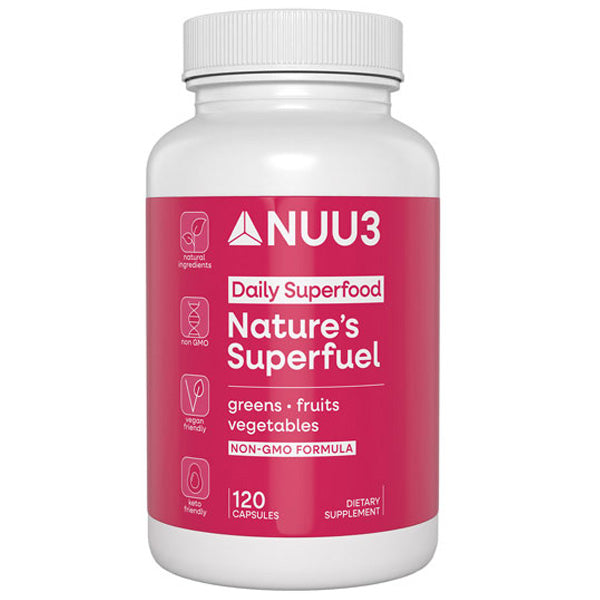Holistic Nutrition: Nourishing Mind, Body, and Soul

What is Holistic Nutrition?
In this fast-paced world where wellness trends come and go, holistic nutrition is a timeless approach to nourishing the body and mind. This blog delves into what holistic nutrition entails, its principles, and how adopting this approach can positively impact your overall health and well-being.
The Basics of Holistic Nutrition
Holistic nutrition is an approach to health and wellness that considers the interconnectedness of body, mind, and spirit in achieving optimal well-being. Unlike the conventional method, which focuses solely on the nutritional content of food, holistic nutrition integrates broader factors such as lifestyle, emotional well-being, and environmental influences.
At its core, holistic nutrition emphasizes consuming whole, unprocessed foods rich in nutrients and free of artificial additives. The approach recognizes that each person has unique nutritional needs based on factors like genetics, metabolism, and overall health goals. By promoting the consumption of nutrient-dense foods and advocating mindful eating practices, holistic nutrition supports natural healing processes, improves digestion, enhances energy levels, stabilizes mood, and boosts overall health.
Holistic nutrition also encourages lifestyle modifications such as implementing stress management techniques, improving sleep quality, and engaging in regular physical activity to complement dietary changes. By addressing the root causes of health issues and promoting preventive care, holistic nutrition offers a comprehensive approach to achieving and maintaining optimal health, vitality, and longevity.
The Importance of Holistic Nutrition in Modern Life
In the context of busy modern lifestyles, the importance of a holistic diet cannot be overstated. It offers a comprehensive approach to nourishing the body that considers not only nutritional needs but also the broader aspects of health, including mental well-being and environmental influences.
A holistic diet emphasizes consuming whole, unprocessed foods that provide essential nutrients in their natural forms. This approach supports optimal health by promoting better digestion, enhancing energy levels, and boosting immunity. In a society where stress, sedentary habits, and processed foods are prevalent, a holistic diet can mitigate the risks of chronic diseases and improve overall well-being.
By encouraging mindful eating practices and considering individual needs, holistic nutrition empowers individuals to make informed dietary choices that support long-term health and vitality. It fosters a holistic approach to wellness that aligns with the diverse and demanding realities of modern life.
The Benefits of Holistic Nutrition
A holistic nutrition approach offers several key health and wellness benefits. In this section, we look at each advantage in detail.
Improves Digestion and Nutrient Absorption
Holistic nutrition can improve digestion and nutrient absorption by emphasizing whole, nutrient-dense foods that are easy for the body to process. These foods often contain essential enzymes and fiber, aiding digestion and reducing gastrointestinal issues. By optimizing gut health and nutrient absorption, holistic nutrition supports overall well-being and helps your body utilize essential vitamins, minerals, and antioxidants for improved health.
Consider complementing your holistic diet with a natural supplement like NUU3 Gut Health 365, which contains probiotics and enzymes that enhance digestion by promoting a balanced gut microbiome, supporting nutrient absorption, and optimizing overall digestive function.
Enhances Energy Levels and Mental Clarity
Holistic nutrition boosts energy levels and mental clarity by emphasizing nutrient-dense foods that stabilize blood sugar levels. By reducing reliance on processed foods and sugars, holistic nutrition can improve cognitive function and enhance mood, promoting clarity, focus, and mental well-being throughout the day.
Supports Weight Management and Metabolic Balance
Holistic nutrition aids in weight management by encouraging foods rich in nutrients that support a healthy metabolism and regulate appetite. Supplements like NUU3 ACV gummies can assist in weight loss by enhancing digestion and promoting satiety, complementing a holistic approach to achieving and maintaining a healthy weight.
Enhances Long-Term Health and Disease Prevention
Holistic nutrition supports long-term health and disease prevention by emphasizing foods that provide essential vitamins, minerals, and antioxidants. This approach strengthens the immune system, reduces inflammation, and supports vitality, lowering the risk of developing chronic conditions such as heart disease, diabetes, and certain cancers to promote longevity and well-being.
Incorporating Holistic Nutrition into Your Life
Incorporating holistic nutrition into your life involves embracing whole, unprocessed foods, practicing mindful eating, and prioritizing lifestyle factors like stress management and adequate sleep. By making these choices consistently, you can enhance overall health, energy levels, and well-being, fostering a sustainable and balanced approach to nutrition and life.
Practical Tips for Transitioning to Holistic Nutrition
How do you practically make the switch to a holistic nutrition diet and lifestyle? These are some of our best tips for transitioning to this approach:
- Holistic nutrition includes focusing on whole foods, reducing processed items, practicing mindful eating, staying hydrated, and incorporating stress-reducing activities like yoga or meditation into your lifestyle.
- Mindful eating practices in holistic nutrition involve savoring whole, nutrient-dense foods to promote awareness of hunger cues and enhance digestion. Supplements like NUU3 Nature’s Superfuel can complement this approach by providing essential nutrients that optimize health and immune function.
- Hydration and balanced macronutrients are crucial in holistic nutrition, supporting optimal bodily function and energy levels. Adequate water intake and a balanced diet of proteins, fats, and carbohydrates can enhance overall health and well-being.
- Managing stress levels and making holistic lifestyle adjustments are integral to holistic nutrition to promote mental well-being and overall health. Mindfulness, yoga, and adequate sleep support a balanced lifestyle and enhance overall vitality.
Challenges and Considerations
Holistic nutrition is a comprehensive approach that integrates various aspects of health and wellness, and it can present challenges for some individuals, including:
- Transitioning from Processed Foods: Switching from a diet high in processed foods to a regimen focused on whole, nutrient-dense options can be challenging due to varying taste preferences and lack of convenience.
- Cost Considerations: Organic and locally sourced foods, often emphasized in holistic nutrition, may be more expensive than conventional options.
- Time Commitment: Meal planning, cooking from scratch, and sourcing quality ingredients require time and effort, which can be daunting for those with busy schedules.
- Bio-Individuality: Holistic nutrition emphasizes bio-individuality, meaning finding the right balance of nutrients and dietary choices tailored to each person’s needs.
- Mindful Eating Practices: Adopting mindful habits, such as eating slowly and savoring food, may require a shift in mindset for those accustomed to quick or distracted eating.
- Emotional and Social Factors: Food choices often have emotional and social components, making it challenging to navigate social situations or emotional eating triggers while adhering to holistic principles.
- Lack of Access: Limited availability of organic or whole foods in some areas can hinder efforts to adopt holistic nutrition practices.
Overcoming these challenges involves gradual changes, seeking support from holistic nutrition professionals, and prioritizing education and awareness about holistic principles. Despite the challenges, holistic nutrition may improve overall health, enhance energy levels, and promote a greater sense of well-being by nurturing the body and mind.
FAQs
What is a holistic way of eating?
A holistic way of eating focuses on consuming whole, nutrient-rich foods that support overall health and weight loss. This approach addresses the physical, mental, and emotional aspects of well-being through mindful eating practices and balanced nutrition.
What are examples of holistic foods?
Examples of holistic foods based on the green Mediterranean diet include fresh fruits, vegetables, whole grains like quinoa and brown rice, nuts, seeds, and olive oil, all of which have health-promoting properties and emphasize nutrient density.
What is the difference between holistic nutrition and regular nutrition?
Holistic nutrition considers the entire person, integrating physical, emotional, and spiritual aspects into dietary recommendations. It emphasizes whole, minimally processed foods and is tailored to individual needs. A regular, non-holistic regimen focuses primarily on meeting nutritional needs based on scientific guidelines and dietary standards, often prioritizing specific nutrients and health outcomes without as much emphasis on broader aspects of health.
Takeaway
Holistic nutrition represents a comprehensive approach to health and wellness, integrating whole foods, mindful eating practices, and personalized dietary strategies. By addressing the physical, emotional, and spiritual aspects of well-being, it promotes optimal health and vitality for individuals seeking a balanced and sustainable lifestyle. If you’re interested in switching to holistic nutrition, meet with a registered dietician to help you plan the best regimen for your needs.













